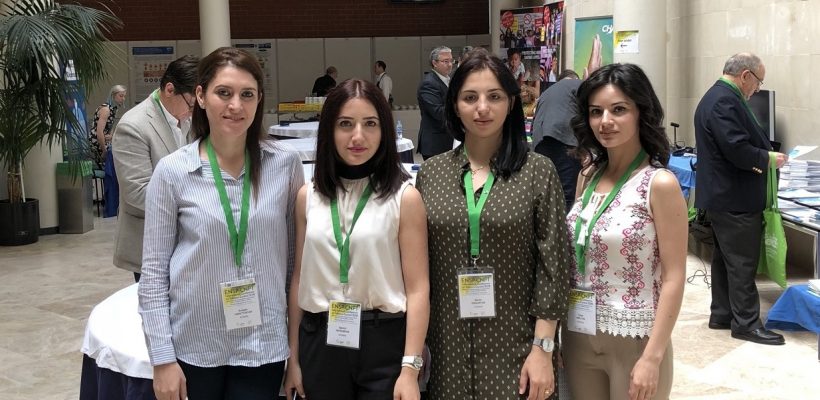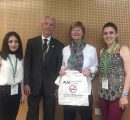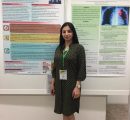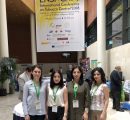
Turpanjian School of Public Health at the European Network for Smoking and Tobacco Prevention Conference 2018
2 min readMADRID, Spain ‒ From June 14 to 16, Senior Researcher Dr. Arusyak Harutyunyan (MPH ’09), Research Associates Gohar Abelyan (MPH ’15) and Zaruhi Grigoryan (MPH ’15), and Research Assistant Varduhi Hayrumyan (MPH ’16) from the Zvart Avedisian Onanian Center for Health Services Research and Development (CHSR) at the American University of Armenia (AUA) Turpanjian School of Public Health (SPH), were competitively selected to participate and present at the third annual International Conference on Tobacco Control 2018 of the European Network for Smoking and Tobacco Prevention (ENSP). Themed “Meeting new challenges, joining local and global efforts towards the tobacco endgame in Europe,” the conference aimed to gather national representatives, healthcare professionals, academics, and experts in the field of tobacco control at a single platform to speak out about local and global challenges and efforts needed to combat the tobacco epidemic.
Dr. Harutyunyan co-chaired a session on “Tobacco dependence treatment among special populations” with Professor Taylor Hays, Associate Director of Nicotine Dependence Center at Mayo Clinic. As a guest speaker, she delivered a talk during the same session and presented on the “Challenges and opportunities for integrating tobacco dependence treatment into TB care in Armenia.” The talk summarized the results of the “Integrating evidence-based tobacco control services into tuberculosis control in Armenia” project, supported by the Global Bridges Healthcare Alliance for Tobacco Dependence Treatment hosted by the Mayo Clinic and Pfizer Independent Grants for Learning and Change (IGLC). Dr. Harutyunyan was awarded an AUA Faculty and Staff Development Conference Presentation Grant to participate in the conference.
Based on the results of the same project, Grigoryan presented two posters titled “Smoking cessation services provided by tuberculosis physicians in Armenia: A qualitative study,” which was authored by Grigoryan, Harutyunyan, Armine Abrahamyan, and Hayrumyan, and “Tuberculosis and tobacco in Armenia: Physicians’ perspective on two global epidemics,” which was authored by Abrahamyan, Harutyunyan, Grigoryan, and Hayrumyan.
Dr. Harutyunyan also made an oral presentation on “Availability of smoking cessation products among 14 European countries,” and Hayrumyan delivered a speech on “Price and affordability of cigarettes among 14 European countries.” Both abstracts were developed in collaboration with the EuroPean Accreditation Curriculum on Tobacco Treatment-2 (EPACTT) project partner countries. In addition to the conference activities, Dr. Harutyunyan participated in the ENSP General Assembly meeting as a representative of the SPH (ENSP member since 2017) and attended the EPACTT project meeting.
Abelyan delivered a talk on “Prerequisites, components and barriers to the implementation of a smoking cessation training course for medical residents in Armenia.” The project was implemented in the framework of the Scientific co-operation between Eastern Europe and Switzerland (SCOPES)’s project called “Training medical residents for smoking cessation counselling in Armenia and the Czech Republic: a pilot project” funded by the Swiss National Science Foundation and Swiss Agency for Development and Cooperation.
All abstracts were published in the special issue of the Journal Tobacco Prevention and Cessation, June 2018 Supplement/ Volume 4.
The ENSP conference was an important opportunity for professional growth by familiarizing the participants with the latest developments in the field of tobacco control, strengthening capacity for tobacco cessation, as well as meeting with researchers and activists working in tobacco control.
The AUA Gerald and Patricia Turpanjian School of Public Health works actively to improve population health and health services in Armenia and the region through interdisciplinary education and development of public health professionals to be leaders in public health, health services research and evaluation, and health care delivery and management.





